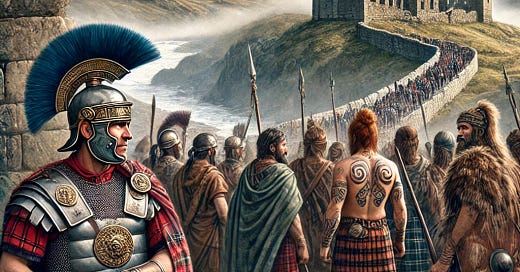The Effect of the 5th Century Roman Withdrawal on Scotland
The Roman Empire's expansion across Europe and Britain marked one of the most significant historical epochs, bringing with it sweeping changes in governance, infrastructure, and culture. However, the northernmost reaches of Britain—modern-day Scotland—proved difficult to conquer and control. The native tribes, particularly the Caledonians and the Picts, resisted Roman efforts for nearly four centuries. When the Romans eventually withdrew from Britain in the early 5th century, it had profound consequences for these indigenous groups and for the region that would later become Scotland.
The Roman Campaigns in Caledonia
The Romans first ventured into Caledonia (the Roman name for Scotland) under the command of Governor Agricola in AD 78, during the reign of Emperor Vespasian. Agricola’s campaigns were notable for their brutal efficiency. The Roman forces advanced far into the north, and by AD 83, they had confronted the Caledonian tribes in the Battle of Mons Graupius, as recorded by the Roman historian Tacitus in his Life of Agricola.
Keep reading with a 7-day free trial
Subscribe to Tales of Forgotten Scottish History to keep reading this post and get 7 days of free access to the full post archives.




